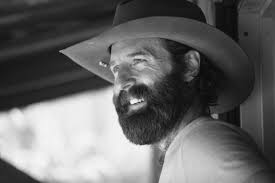By Sean Dietrich
This morning, I woke up to an inbox flooded with emails regarding something I wrote yesterday about hope. These were all deeply personal, heartfelt messages.
There were a few emails about divorce. Three were from people losing spouses to dementia. One older lady even sent an email detailing the many orthopedic benefits of going without a bra.
And 42 emails were about suicide.
Here are a few sample sentences from the letters:
“I was gonna take my own life when I was sixteen… But my best friend called and told me she was thinking of me.”
“My father died by his own doing and I almost died the same way when I was depressed, but my family stepped in… I’m on medication now.”
“We never said the word suicide in my house after my brother died…”
“Well, personally, I’ve always had a love-hate relationship with my bra. For me, the benefits of going braless are simple, no indents from painful wires or straps on your back fat…”
The truth is, I don’t like talking about suicide any more than I like talking about underwire bras and back fat. For one thing: I’m male. For two: My life has been tinted by suicide.
My father took his life when I was a kid. I grew up thinking about this issue a lot and it got to a point where I wanted not to think about suicide ever again.
In fact, this is the reason I spent a lot of time reading humor when I was a boy. Humor is not just slinging jokes and one-liners. It’s a way of looking at the world without losing your mind. It’s sharing the worst moment in your existence in story form, then breaking the tension in the room with a flippant remark about not wearing a bra.
I say all this to tell you that suicide is a very personal subject to me. And even though I know a lot of people cringe when I use this word, 42 people need to talk about it. And I’ll bet there’s more.
Nobody ever talked about it when I was growing up. And I mean nobody. When people saw us in the supermarket, they gave us looks of incredible pity but said nothing. Several childhood friends dropped off the radar. Family members, too.
And who can blame them? Nobody knows how to deal with suicide. Least of all those who survive it. When my father died it was a different era. Suicide was a foul thing. It wasn’t like today. You would have never heard the topic discussed on the nightly news or daytime television.
Thus, many of us who went through a suicide were sort of ostracized. I remember once working up the courage to talk to a pretty girl only to have her look at me like I had cockroaches crawling from my nostrils. I realized that she didn’t want to associate with someone like me.
Maybe if my father would’ve died in a car wreck it would have been different. But he didn’t.
So I know it’s a dirty word. In fact, you’re probably wincing each time I use it. Then again, maybe you’re not. The word is used more often today than it used to be, but in a sort of desensitized way.
Television journalists throw the term around while wearing big frowny faces, perhaps because it boosts ratings. And it’s even weirder to watch celebrities “speak out” against suicide on various televised award ceremonies.
Celebrities love to crusade for stuff. They can’t wake up in the morning without going on a few groundbreaking crusades before lunch. Times have changed. You rarely ever saw Humphrey Bogart on the red carpet crusading for anything but another Jack and Coke.
But this “speaking out” has become trendy, and at first glance it looks like the pretty faces on TV are actually ringing all the right bells. And maybe they are.
But you take a guy like my father. He would have seen a pop-star on an award ceremony accepting the Golden Statue For Whatever Big-Budget Movie They Were In, and when the star “spoke out” against depression, suicide or whatever the issue du jour was, Daddy would have simply gotten another beer.
This isn’t the kind of open talking I mean. The reason I’m writing this is because I want anyone out there who is thinking of doing a terrible deed to know something:
You can tell someone about it.
During the years, I have spoken with a lot of suicide survivors at various awareness conventions and events, and do you know what the most common thing I hear is?
“I had no idea. I wish I would’ve known.”
What I’m telling you is—and by “you” I mean you—that your friends are only a button-click away, and they actually want you to call them. Right now. Just call. Even if you don’t know what to say.
I’ll stop here because I’m running out of room. I’m truly sorry for today’s downer column. I didn’t mean to make you sad. So since I don’t want to leave you with a feeling of dread, I would like to remind you about the many orthopedic benefits of going without a bra.
One lady told me it feels like being set free.
Which is what I sincerely hope for anyone who suffers.

